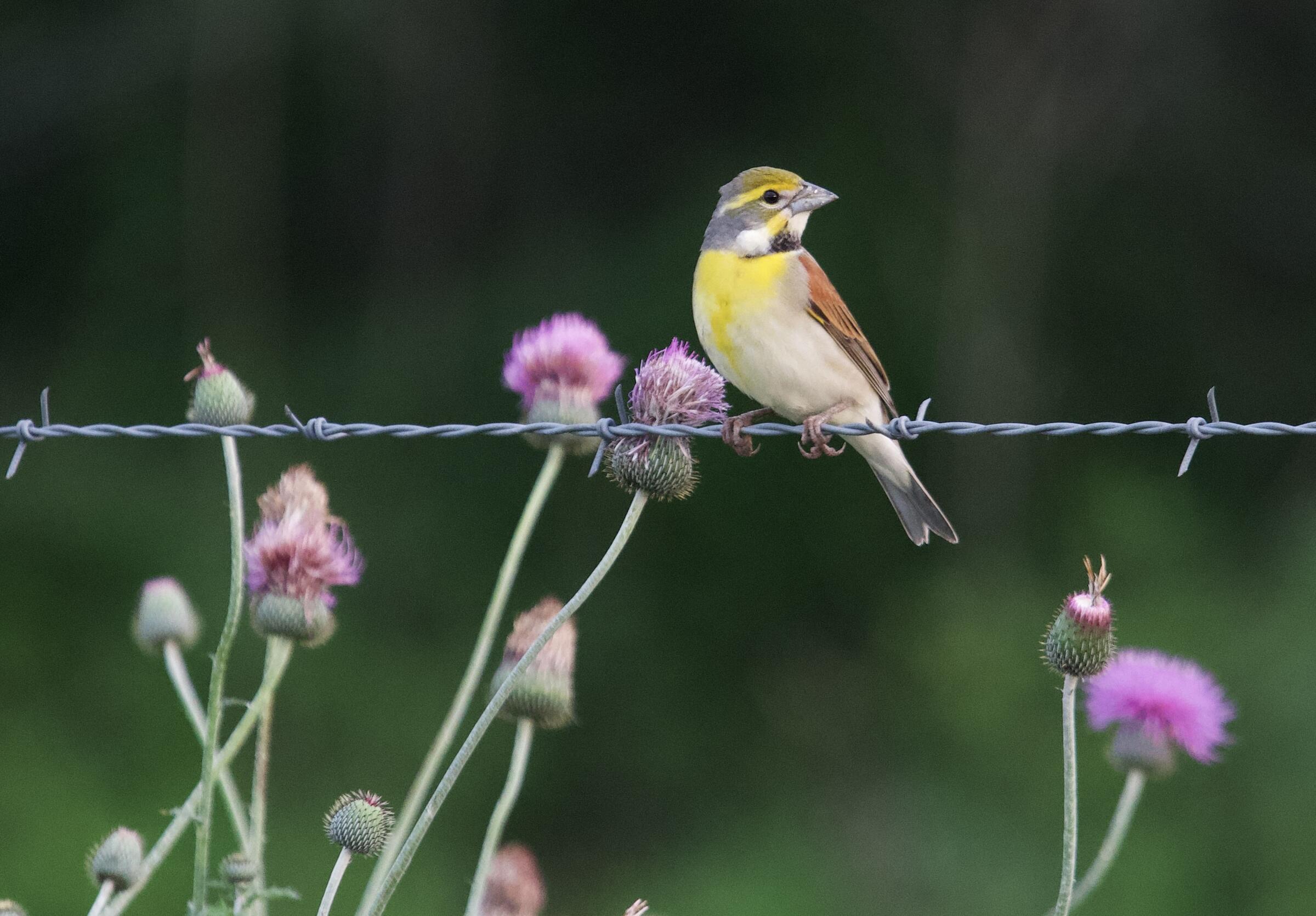While birds don’t speak human languages on the regular (apologies to the legacy of Alex and other African Greys; your language skills are not the norm), they tell us plenty of information. Birds Tell Us the story of immigration and emigration, love, survival, and frankly, if we are doing enough for them – and us – to thrive.
Whether you are a novice or you have been birding your whole life, you cannot help but notice the pulse of migration sweeping across Texas right now. Daily, more birds are singing, visiting water features, and showing up in parks. If we aren’t careful with lights and window reflections, we also may be experiencing an increase in birds striking windows. Peak migration, where more than 30 million birds fly across our state in a single night, is nearly over, but birds will continue to use our state as a flyover resting spot into early June. Each of those birds is telling us a story. They say ‘I made it this far! I am on my way to claim nesting territory. I am determined to breed, survive, and return to my winter spot.’ Birds tell us how to pursue the next life step with unwavering determination. They also tell us if they have enough: shelter and space, food and water, clean air, freedom from light and sound pollution, etc. As with every year, Environment for the America’s helps us focus on the needs of birds by elevating a specific theme for World Migratory Bird Day. This year, they chose “water”, which is fitting for us in Texas. Large swaths of our state are in drought conditions and have been for a long time. When water is hard to come by for humans, it’s hard to come by for birds and other wildlife, too.
It’s easy to fall into a scarcity mindset when looking at the data on birds and water. I challenge you to stay courageous and look at the challenges of migration and water usage from an abundance mindset. What actions can you take this year to both preserve water for the next generation of birds and people, while being generous? The place that we have the most power to enact change is most often our residences. Small changes in our homes can collectively lead to big changes system wide. Here are some actions you can take for water and birds:
- Turn off faucets whenever possible; do not leave it running while brushing teeth or washing dishes.
- Check for leaks; small leaks add up to big amounts of wasted water over time.
- Share your water with birds by filling up small, shallow containers and placing them in backyards or any available space; patios and balconies can be shared with birds, too! Clean the water dishes regularly to help stop the spread of diseases. A daily rinse and wipe are all it takes.
- Replace decorative potted plants and sodded yards with native species that require less water. Need ideas for Native Plants? Check out National Audubon’s Plants for Birds site.
- Replace sprinklers with drip irrigation hoses, which get water to roots with less wasted water.
- Contribute to community science data by signing up for and participating in Community Collaborative Rain, Hail, and Snow Network (CoCoRaHs).
- Chat up your neighbors on your water practices and ask them about theirs. Too often folks just do not know how their water usage impacts the system and a simple conversation can inspire changingbehaviors.
- If you're already taking some of these steps, we'd love to see it! Take a picture and tag us @AudubonTexas on IG or FB, #WaterForBirds #BirdsTellUs
Want to take action to the next level? Get involved in water issues statewide. Texan by Nature has started the Texas Water Action Collaboration, where you can learn about organizations who are tackling water issues directly. Organizations like Houston Advanced Research Center and Galveston Bay Foundation have recommended best practices to inspire you, with research supporting watersheds along the eastern side of our state.
The bottom line is each of us has power to change the world for the better. Each person has a responsibility to act, no matter how small that action is. You can be the person that provides life-saving water for a bird that travels across the Western hemisphere. Who knows how many people that one individual bird can galvanize?





